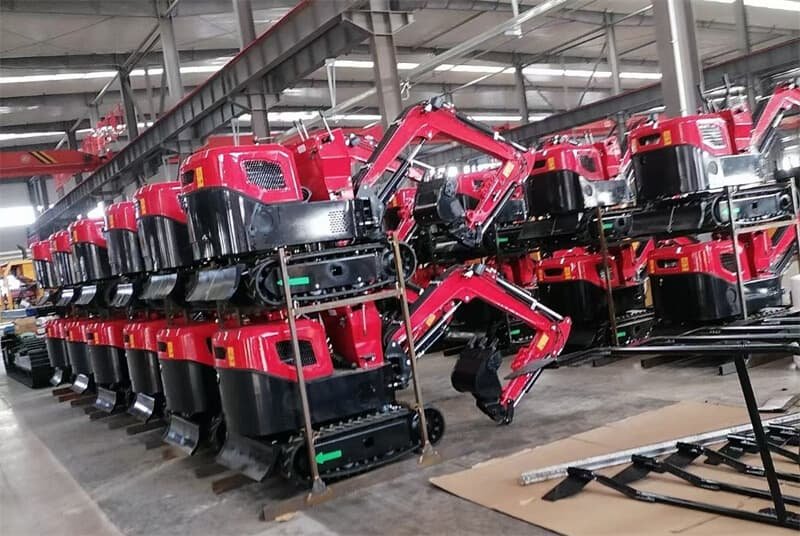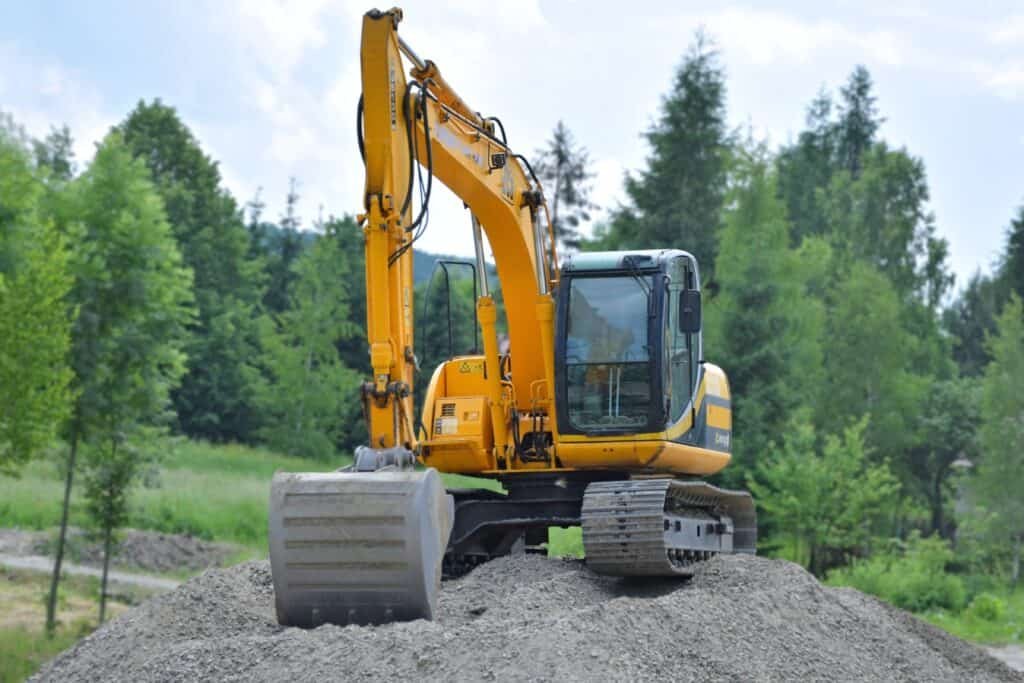Are you in the market for an excavator, but not sure whether to go with a mini or regular model? Digging into the differences between the two can help you make an informed decision. Mini excavators are smaller, more maneuverable, and designed for specific purposes, while regular excavators are larger and more powerful. Both have their advantages, so the better option depends on the job you need to do. In this article, we’ll explore the differences between mini and regular excavators, and what makes each one better in certain situations. Learn more about which type of excavator is right for you, so you can make the best choice for your project.

Table of Contents
ToggleWhat is a regular excavator?
Regular excavators differ from minis in a few key ways. Compared to minis, they have a larger work envelope, higher HP, longer reach, and larger bucket capacity. Regular excavators are best for high-production jobs like construction, mining, or demolition, where larger amounts of earth need to be moved. They are also used in areas with higher clearance requirements. Regular excavators are typically more expensive than mini excavators, but the price difference varies by manufacturer. They also consume more fuel per hour than minis. Finally, regular excavators produce more noise than minis, which can be an issue on residential jobsites.

Top One Big Excavator Brands:
Komatsu was founded in 1921 and has completed its 100 years of service. It is a multinational company with headquarters in Tokyo, Japan, and Minato. It is the second-largest construction machinery manufacturer in the world. It has fame in the mini excavator brands industry.
Komatsu’s excavators are famous for their 3D GPS, advanced technology, multifunctional motions, fast cycle times, exceptional lifting capabilities, and precise bucket movement.
Key differences between mini and regular excavators
- Work envelope: A mini excavator’s smaller dimensions allow it to fit into more confined spaces. For example, if your excavator needs to dig in an area with limited room to maneuver, the mini model will have a smaller footprint and be able to fit where a regular model wouldn’t.
- Maximum reach: The maximum reach is the distance between the tip of the arm and the ground. For mini excavators, the maximum reach is typically between 10 and 16 feet, while regular excavators can extend up to 23 feet. While this is a major difference between mini and regular excavators, keep in mind that the average reach is around 16 feet. If your job requires a longer reach, you may need to go with a regular excavator.
- Bucket capacity: The maximum amount of material that can be lifted and carried by the bucket of an excavator is called the bucket capacity. Mini excavators have smaller buckets than regular excavators, which means they can lift less at a time. This is a major difference between mini and regular excavators, since the amount of material you can move at one time is an important factor in excavation jobs.
- HP: Horsepower is a measurement of an excavator’s engine power. While mini excavators usually have HP around 10 to 14, regular excavators have about 20 to 40 HP. More HP means more power, which is important for larger jobs that require more digging and moving of earth.
Top 1 Mini Excavator Brands:
Hixen is a leading excavator manufacturer in China with 13 years of experience. The products range from the smallest 0.8 ton mini excavator to the 23 ton hydraulic crawler excavator and have been supplied to more than 30 countries with a high reputation. The excavator factory covers an area of 8,000 square meters and has modern automated production lines. More than 100 experienced technicians and professional service teams provide pre-sale, in-sale, and after-sale services for every valued customer.
Advantages of mini excavators
- Smaller footprint: One of the primary advantages of mini excavators is their smaller footprint. This makes them ideal for places where there isn’t enough room for larger excavators, like in cramped construction sites in urban areas or on narrow jobsites.
- Quieter operation: Mini excavators are quieter than regular models, which is helpful when working in residential areas. They also use less fuel, so they’re more environmentally friendly than larger excavators.
- Less pricey: Mini excavators are less pricey than regular models thanks to their lighter-duty components, smaller engines, and smaller bucket capacity. If you don’t need the power and heavy lifting capacity of a regular excavator, minis are a viable option.
Advantages of regular excavators
- High lifting capacity: While mini excavators have smaller buckets that lift less material at a time, regular excavators have larger buckets that lift more. This is a key advantage of regular excavators that makes them ideal for construction work.
- Longer reach: Because mini excavators have shorter arms, they don’t extend as far as regular models. An excavator’s reach is the distance between the tip of the arm and the ground. Regular excavators have longer arms than mini models, which is ideal for jobs that require digging deeper or lifting material higher.
Which type of excavator is better for different applications
Mini excavators are best for tasks like landscaping, grading, and demolition where less earth needs to be moved. Because they have smaller buckets, they are better suited for smaller material loads. Mini excavators are also great for jobsite applications where space is limited. Regular excavators are best for larger jobs like construction where large amounts of earth need to be moved. They are also better suited for jobs that require deep digging or lifting large amounts of material since their longer arms give them a higher reach.
Conclusion
When deciding between mini and regular excavators, it’s important to consider the job you need to do. Mini excavators have smaller work envelopes and lift less material at a time than regular excavators. They are best for smaller jobs that don’t require as much digging. Regular excavators have larger work envelopes and lift more material at a time. They are better suited for larger jobs that require more digging and lifting. Regular excavators are also better for jobs that require digging deeper. Overall, the type of excavator you choose depends on the job and the space you have to work with.

